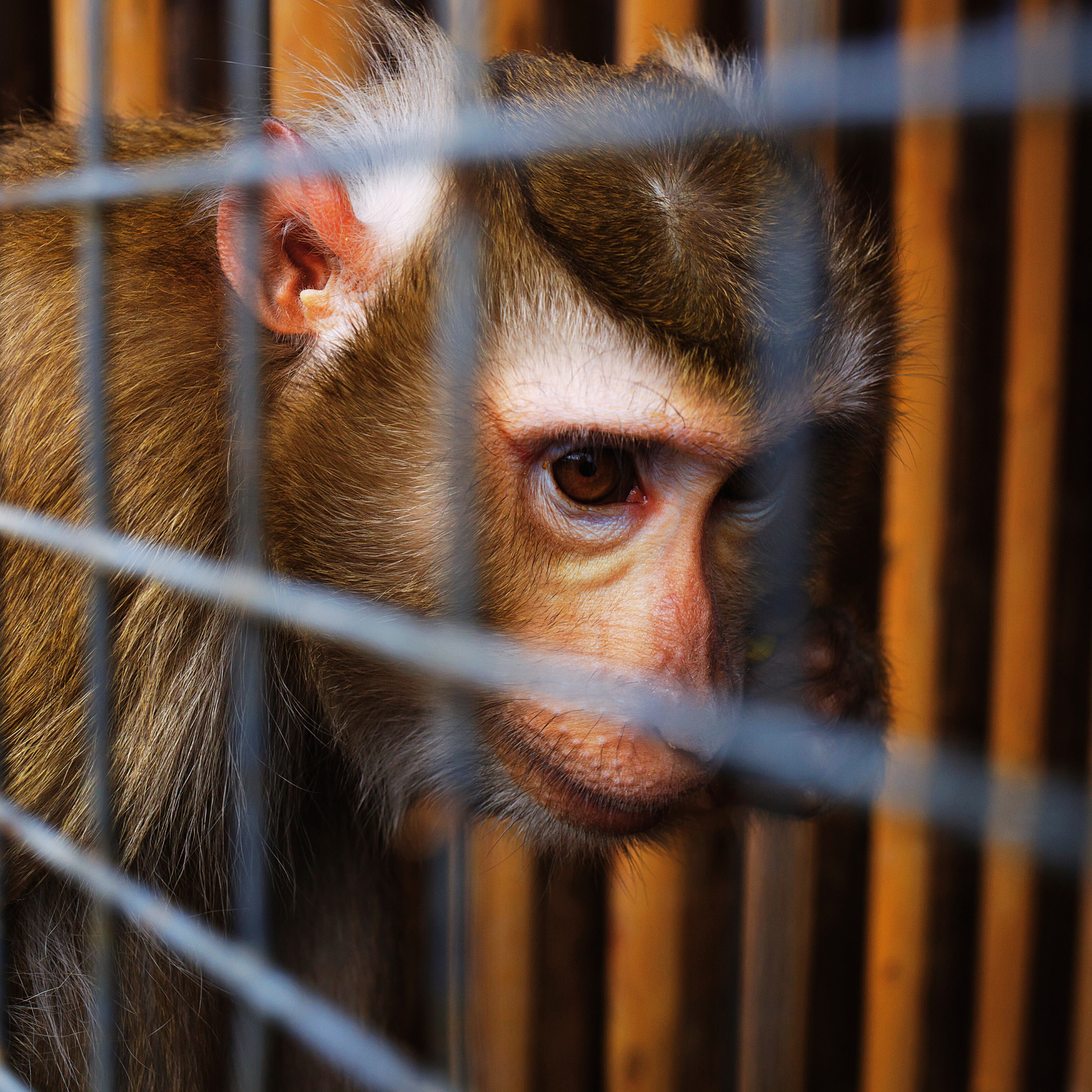Coconut is an essential ingredient in many cuisines around the world and in the cosmetics industry. Its popularity continues to grow due to its numerous health benefits. However, behind this thriving industry lies an often overlooked and controversial reality: the use of monkeys to harvest coconuts.
In some regions, particularly in Southeast Asia, monkeys are trained and used to climb coconut trees to pick the fruit. These monkeys, often of the macaque species, are trained from a young age to perform this task. The images of these animals chained and forced to work are infinitely sad, and I won't even mention the videos, which I confess I was unable to watch, it's so atrocious.
The exploitation of monkeys for coconut harvesting raises major animal welfare concerns. Studies show that the training and working conditions are extremely stressful for the monkeys, leading to negative consequences for their mental and physical health. Training methods often involve the use of force and coercion; if the monkeys show aggression or resistance to the task, their teeth are simply pulled out. They are forced to work from morning until night and are literally uprooted from their habitat.
In conclusion, what can you do?
Find out more:
Educate yourself about the specific practices of the coconut industry in the brands you buy. Choose brands that publicly commit to animal welfare and sustainable practices. Make sure the coconut oil/butter is organic and find out where it comes from.
Support responsible brands:
Choose coconut products from brands that are certified ethical or use ethical alternatives to monkeys. Some brands have pledged to ensure animal-friendly practices. (Some companies may use animal welfare commitment statements for marketing purposes without actually implementing animal-friendly practices, so be vigilant.)
Express your concern:
Make your voice heard by expressing your concerns to brands. Send emails, use social media to ask questions about their practices, and let them know that animal welfare is an important factor in your purchasing decision.
Promote alternatives:
Encourage the use of ethical alternatives to coconut harvesting involving monkeys. Support brands that invest in more animal-friendly methods, such as using machinery or other harvesting methods.
Share the information:
Raise awareness about the issues surrounding monkey exploitation in the coconut industry. The more widespread awareness, the greater the pressure for positive change.
I leave you with these words... Animals have the right not to be mistreated because, like humans, they have the capacity to suffer. Author unknown







